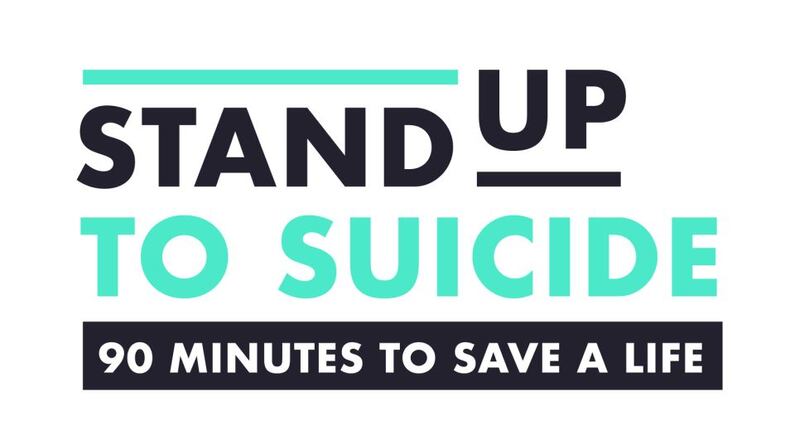Stand Up to Suicide uses a prevention technique called question, persuade and refer, or QPR. During a free 90-minute training, attendees learn the skills to recognize and intervene when someone might be thinking of suicide.
RELATED: How Dayton can stop increase in teen suicides
“It’s 90 minutes that will help you help someone else,” said Ann Stevens, public information coordinator for ADAMHS. “A lot of times people don’t know what to say. You’re concerned but you’re not sure what to do.”
The training teaches how to ask pertinent questions, how to recognize the early warning signs of suicide, how to offer hope and how to get someone the proper care to save a life, she said.
There were 405 suicide deaths between 2012 and 2016 in Montgomery County. Suicide deaths in Ohio have increased by 24 percent over the past decade.
“Suicide doesn’t discriminate and is often preventable,” ADAMHS Executive Director Helen Jones-Kelley said. “Traumatic events like the Memorial Day tornadoes or the Oregon District mass shooting can bring thoughts of suicide.”
RELATED: Why youth mental health is one of the Miami Valley’s biggest issues
The goal of Stand Up to Suicide is to increase public awareness of suicide and to have as many people as possible trained in QPR so that it becomes as commonplace as using CPR to save lives.
ADAMHS began teaching the program in 2016 and has 10 certified instructors.
Free sessions this month are available 9 to 11 a.m. Friday, Sept. 20; Tuesday, Sept. 24, and Friday, Sept. 27, at the ADAMHS office, 409 E. Monument Ave. in Dayton, as well as 2 to 4 p.m. Monday, Sept. 30.
RELATED: What schools are doing to improve student mental health
To register for any of the remaining free scheduled events, visit mcadamhs.org/trainings_and_events and click on Stand up to Suicide.
Groups or employers can also request a session at their location by visiting mcadamhs.org or visit Stand Up to Suicide for more information.
About the Path Forward
Our team of investigative reporters digs into what you identified as pressing issues facing our community. The Path Forward project seeks solutions to these problems by investigating the Miami’s Valley mental health. Follow our work at DaytonDailyNews.com/PathForward or join one of our Facebook Groups.
SUICIDE HOTLINES
People in need can call the National Suicide Prevention Lifeline at 1-800-273-TALK (1-800-273-8255) to reach a trained counselor.
The national crisis text line can be accessed by texting CONNECT to 741741.
An online chat option is available by going to suicidepreventionlifeline.org/chat/ and entering your zip code.
WARNING SIGNS OF SUICIDE
Talking about wanting to die
Looking for a way to kill oneself
Talking about feeling hopeless or having no purpose
Talking about feeling trapped or in unbearable pain
Talking about being a burden to others
Increasing the use of alcohol or drugs
Acting anxious, agitated or reckless
Sleeping too little or too much
Withdrawing or feeling isolated
Showing rage or talking about seeking revenge
Displaying extreme mood swings
The more of these signs a person shows, the greater the risk. Warning signs are associated with suicide but might not be what causes a suicide. — American Foundation for Suicide Prevention
WHAT TO DO
If someone you know exhibits warning signs of suicide:
Do not leave the person alone.
Remove any firearms, alcohol, drugs or sharp objects that could be used in a suicide attempt.
Call the U.S. National Suicide Prevention Lifeline at 800-273-TALK (8255).
Take the person to an emergency room or seek help from a medical or mental health professional.
About the Author
